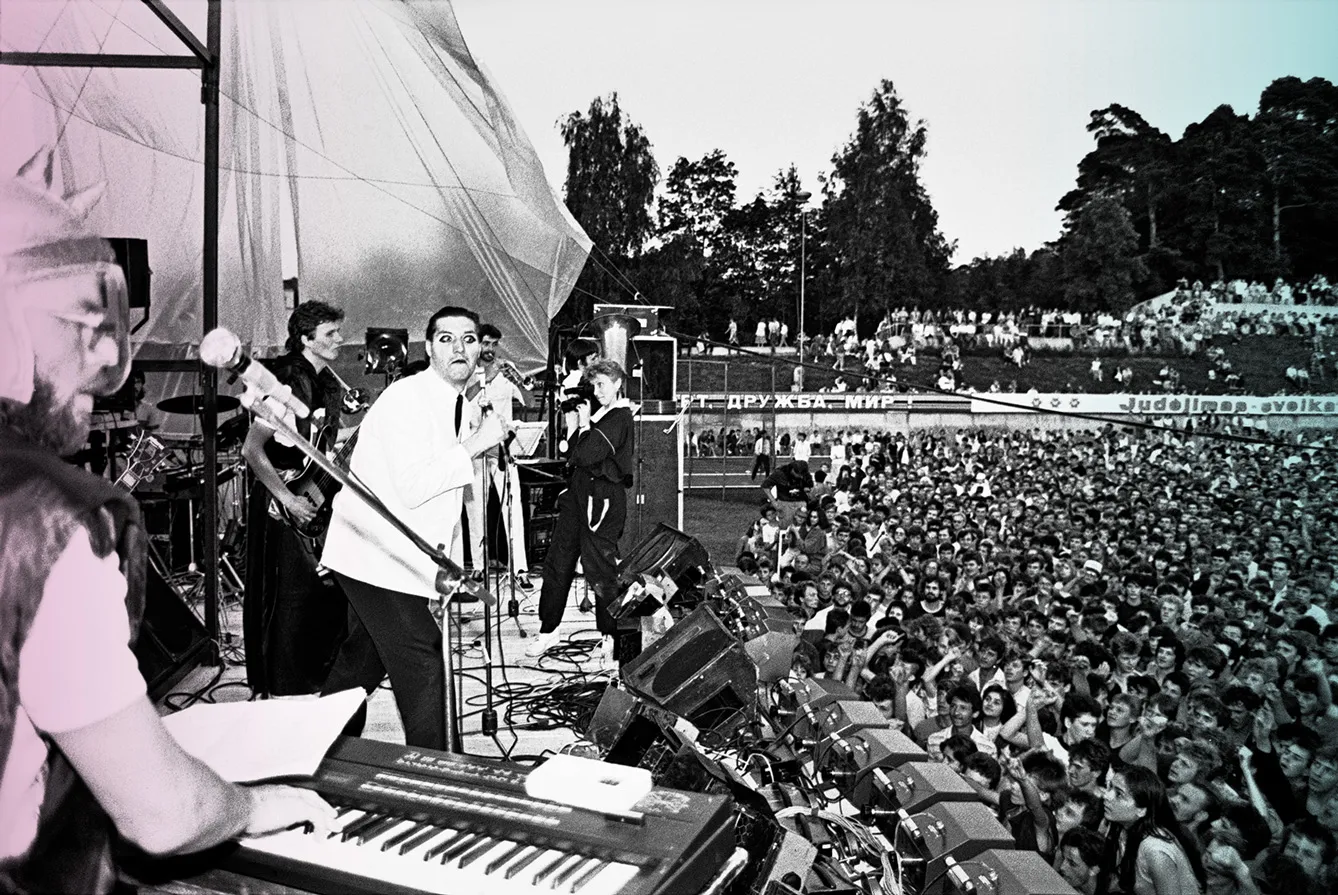These are two policies announced by the leader of the Soviet Union, Mikhail Gorbachev, in 1986, aiming to reform the USSR. Perestroika was intended to restructure the centrally planned economy, and glasnost allowed freedom of the press and speech. This had a snowball effect throughout many Soviet republics because it created local independence movements and enabled them to act as if promoting a new governmental push towards reorganization.
Antis, an accidental rock band
But let‘s get back to 1984 for a moment. It was New Year‘s Eve, and a new rock band was formed to play at a party thrown by the Union of Lithuanian Architects. It was supposed to be their only performance, but what was considered a joke turned out to be so successful that the band decided to continue. The band was named “Antis, “meaning “the duck.” In colloquial Lithuanian, it means fake news, and it was intentionally opposed to the state newspaper called “Tiesa,“ which means “the truth.” That is why Antis became so successful – the band could play around the thin lines of a shiny Soviet political facade and the bitter reality of the people.
Antis’s popularity grew in the following years and became a nationwide phenomenon. In 1986, the band initiated “The March of Rock,“ which traveled around Lithuania for three years. Rock concerts, for many, were consolidating and awakening experiences from dominant apathy and stagnation. For the young generation, it was a sign of Western culture and values finally coming to the Eastern bloc. For older generations, it reminded them of decades back lost independence and gave hope that the same goal could be reached again.
Rocking Moscow
But probably the most important moment in the band‘s history was a visit to Moscow in 1989. The state television had a program called “The Music Ring,“ where two bands battled against each other. The public could also raise questions, but the script was strictly prepared in advance. The night before the performance, “Antis“ rewrote all their answers, and the show went far off the prepared guidelines. The band was making fun of Soviet system ideals live on state television. Of course, indirectly, but it was more than clear to everyone what was being meant.
When asked about their identity, the leader of the band, Algirdas Kauspedas, answered: “We are the fervent servants of the people and the working class,” while at the same time wearing the gothic costume of Dracula. The next question touched upon nationalism and whether the band‘s ideas were outdated, to which he answered: “But what is nationalism? We hear this word for the first time. And to the intelligent guy who asked this, we dedicate a song called: “Shh, intellectual!”
These answers perfectly illustrate that the filming in Moscow became a theatrical performance with a clear political message. It was also perceived in Lithuania as an immense achievement, a victory against the regime in its own territory. Thus, it could be said that “Antis“ extended the boundaries of what can be openly said to the maximum. In this way, it became a source of inspiration to many people, and their concerts were an inseparable part of the Lithuanian freedom movement.







